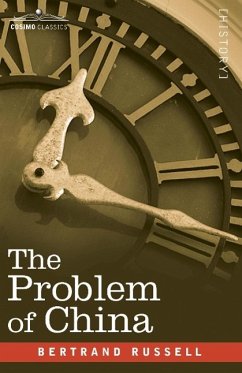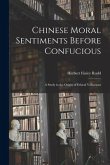The Problem of China, originally published in 1922, is Bertrand Russell's analysis of China's place in the world and its place in the future development of society. It was evident that China would become a major force in international affairs, according to Russell, because the population of the country makes up a major portion of the population of the world. In studying the "problem" of China, Russell breaks his inquiry down into cultural, economic, and political questions. He believes that China, a country whose "virtues are chiefly useful to others and vices chiefly harm to [itself]," would come to a cultural crossroads, and that the choices the country made would affect the economic and political make up of the entire world. Russell's insights of nearly a century ago are still relevant to readers today who wish to understand the Chinese mind and develop an appreciation for how China came to its place in the world today. British philosopher and mathematician BERTRAND ARTHUR WILLIAM RUSSELL (1872-1970) won the Nobel Prize for Literature in 1950. Among his many works are Why I Am Not a Christian (1927), Power: A New Social Analysis (1938), and My Philosophical Development (1959).
Hinweis: Dieser Artikel kann nur an eine deutsche Lieferadresse ausgeliefert werden.
Hinweis: Dieser Artikel kann nur an eine deutsche Lieferadresse ausgeliefert werden.








